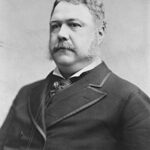The Political Courage Behind Tariff Reform
President Chester A. Arthur surprised critics with his commitment to meaningful tariff reform in 1883. The federal government faced an unprecedented problem: massive budget surpluses that disrupted economic stability. Arthur recognized that excessive tariffs hurt American consumers and stifled business growth. His support for the Mongrel Tariff Act demonstrated remarkable political courage.
Economic Pressures Driving Reform
By 1883, federal revenues exceeded expenditures by over $100 million annually 📊. These surpluses removed crucial capital from circulation, threatening economic growth. High protective tariffs inflated consumer prices across all income levels. Arthur understood that tariff reform would stimulate commerce while maintaining necessary government functions.
The Mongrel Tariff Act’s Strategic Approach
The legislation reduced average tariff rates by approximately 5 percent 💰. Arthur worked with Congress to eliminate duties on numerous imported goods. The reform targeted excessive protection while preserving essential revenue streams. Critics called it the “Mongrel Tariff” due to political compromises, but Arthur viewed it as practical governance. The act reduced annual federal revenue by an estimated $60 million ⚠️.
Impact:
Immediate Economic Benefits
Arthur’s tariff reform delivered swift economic relief to American consumers 💰. Lower import duties reduced prices on everyday goods and raw materials. Businesses gained access to cheaper foreign inputs, improving their competitive position. The reform helped normalize federal finances by reducing problematic revenue surpluses. Manufacturing costs decreased, particularly for industries dependent on imported materials.
Long-term Policy Transformation
The 1883 tariff reform established Arthur as an unexpected champion of fiscal responsibility 📊. His willingness to challenge Republican orthodoxy on protective tariffs impressed contemporary observers. The legislation demonstrated that meaningful reform was possible despite intense political pressure. Arthur’s approach influenced future discussions about trade policy and federal revenue management.
Historical Legacy and Recognition
Modern historians praise Arthur’s tariff reform as evidence of principled leadership 🌍. The policy showed his evolution from machine politician to reform-minded president. Economic historians note the reform’s positive impact on consumer welfare and business efficiency. Arthur’s tariff policy proved that presidents could successfully challenge entrenched economic interests. The 1883 reform helped establish precedents for future trade liberalization efforts ⚠️.
